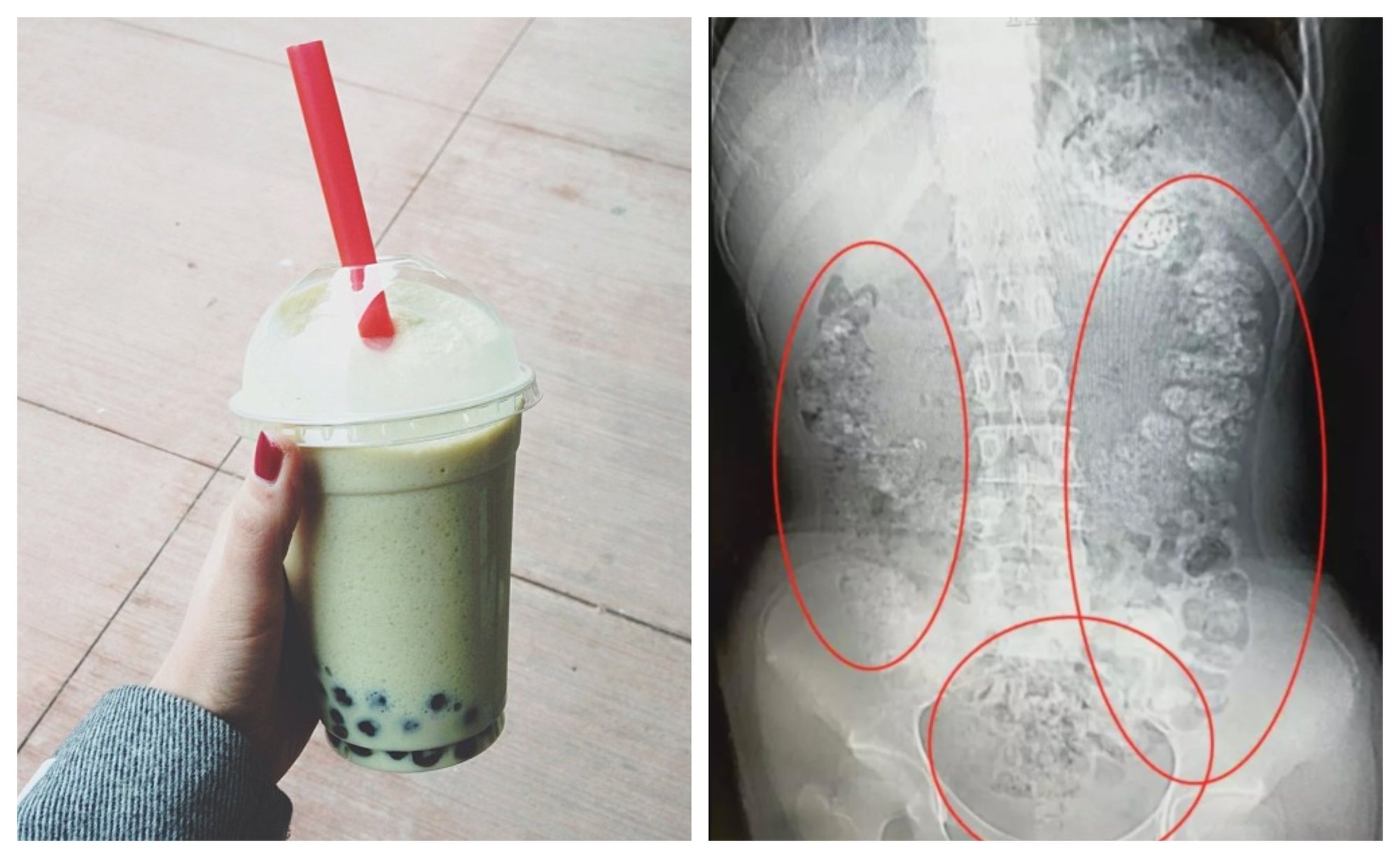
Proving once again that too much of a good thing is, well, not good, an ailing teenager was shocked when doctors discovered that it was her suspected bubble tea habit that was making her sick.
The 14-year-old girl from the Zhejiang province in China had been complaining about a lack of appetite and had been constipated for five days. After being hospitalized, a CT scan soon revealed the source of her discomfort.
Her abdomen was full of at least 100 of the tea’s signature tapioca “pearls,” the chewy balls found at the bottom of the popular bubble tea drink, also known as “boba.”
For those unfamiliar with the popular drink, bubble tea, or “boba,” starts with a tea base that’s combined with milk and fruit flavoring. “Boba” actually refers to the dark “pearls” at the bottom of the drink made from tapioca starch.
As for the teen, doctors questioned her about her boba habit but she refused to spill the tea, so to speak.
Although she allegedly admitted she drank one cup of the tea before she was brought to the hospital, doctors said it would take a substantial amount of the drink — definitely more than just one cup — to become so ill as to require hospitalization.
According to Asia One, the girl was given laxatives and sent home, although there are no reports of her current condition.
Bubble tea is extremely popular with teens and young adults, with boba shops starting to rival the prevalence of coffee shops in some neighborhoods.
But experts warn that bubble tea may not be as healthy as its “tea” moniker might have you believe.
"Though the tea itself is naturally very low-calorie, some of the concoctions pack a hefty amount of added sugar thanks to ingredients like fruit juices and flavored syrups," registered dietitian Sally Kuzemchak wrote on WebMD.
"The pearls — sweet, chewy balls made from the starchy cassava root — add more than 200 calories per half-cup. And bubble tea portions can be just as over-sized as venti mochas. A large tiramisu bubble tea at my local shop clocks in at more than 500 calories," Kuzemchak said.
Even more critical, as in the 14-year-old’s case, too much boba can do serious damage to the digestive system.
A doctor interviewed by Asia One in connection with the case warned that the starch in boba is actually difficult for the body to digest.
Some boba shops use thickeners and preservatives when making their pearls, and ingesting these ingredients on a regular basis can lead to gastrointestinal dysfunction.



